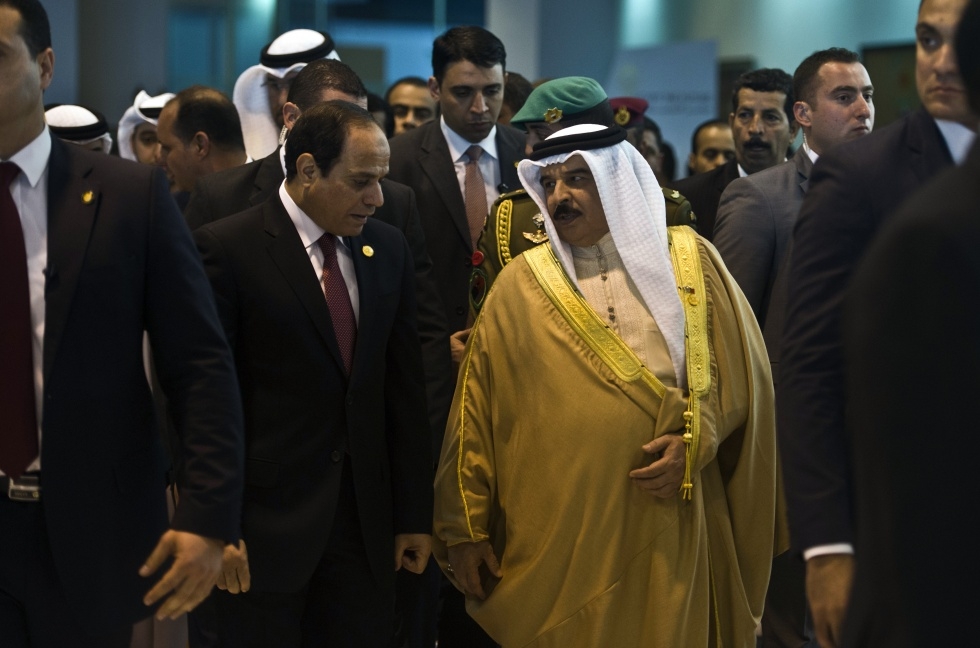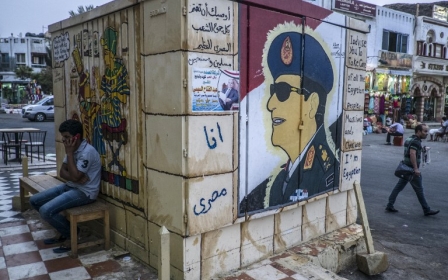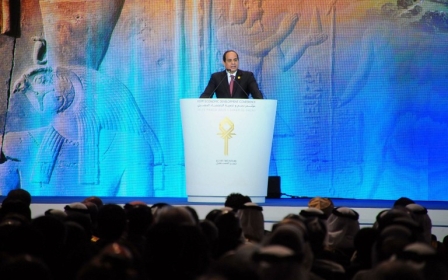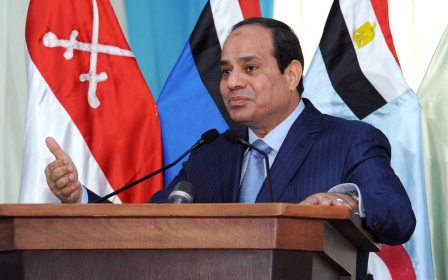Egypt’s economic conference: A temporary fix?

Egypt’s economic summit kicked off today at the Sharm el-Sheikh resort, in the hopes of attracting major foreign investments to boost its battered economy.
Eighty countries and 25 regional and international corporations are expected to attend the three day conference, with Egypt due to unveil 50 investment projects worth $35bn, according to government spokesman Badr Abdel-Ati. Corporations such as General Electric, British Petroleum and HSBC are also expected to be in attendance.
Egyptian President Abdel Fattah el-Sisi is banking on bringing a new era of stability to the country, after four years in turmoil since the January 2011 uprising. Egypt is “a cornerstone in regional stability”, he said on Friday, “[and] a country that rejects violence and terrorism and extremism."
Other officials are relying on advertising Egypt as a secure country in the hopes of securing investment prospects. International Cooperation Minister Naglaa al-Ahwani was quoted as saying, “The aim is to put Egypt back on the map of international investment, and send a message to the world that the country is safe and attractive.”
Economic growth since then has been stunted, with an increase in the budget deficit, general inflation and unemployment. As a result, the national poverty rate has increased by five percent in just four years.
Sisi is working on drafting a law that will remove obstacles in order to ease foreign investment in the country. The president, who was voted into office after the military backed by popular protests toppled elected president Mohamed Morsi in the summer of 2013, is aiming to increase Egypt’s economic growth to 4.3 percent in 2015-2016.
The goal is to reduce unemployment in the same year from a current 13.1 percent to 12 percent. The rate of unemployment for youth is 40 percent, with the job market unable to embrace the annual 800,000 graduates due to population growth exceeding the GDP per capita.
The budget deficit is at a worrying 12.8 percent, which Sisi plans to bring down to 10 percent by raising taxes and carrying out substantial cuts in energy subsidies.
Egypt is a recipient of $3bn worth of aid from the United States, mostly in military aid. However, the US has continued to freeze $650m in military aid since October 2013 after Egyptian authorities cracked down on supporters of Morsi.
Secretary of State John Kerry was present at the conference and affirmed the US’s support for Egypt.
“The US is committed to supporting Egypt’s economic reform,” he said. “The American people are committed to the security and well-being of Egyptian people.”
An Egyptian economist, who preferred not to be named, told the Middle East Eye that is too soon to judge whether the prospective foreign investments will have a positive effect on the Egyptian people.
“Most of the projects’ focuses lack a clear vision,” he said, referring to the Egyptian government’s presentation of prospective ventures. “Of course there is the Suez Canal project which will result in job opportunities. The projects that have a strong vision are the energy ones. Will the energy projects operate intensive jobs? I can’t tell at the moment. Nonetheless, it will offer chances. But the question of will the investments alleviate social problems in a way that the Egyptian street will find agreeable is too soon to tell.”
So far, the Gulf countries of Saudi Arabia, the United Arab Emirates and Kuwait have pledged a total of $12bn between them, with around $3bn to be deposited directly into Egypt’s central bank. The rest of the money will finance development projects and other sectors in the economy.
The three Gulf countries have come to the aid of Egypt’s economic woes previously, giving a total of $23bn in aid.
UAE Vice-President and Prime Minister Mohammed bin Rashid al-Maktoum said that $2bn of the country’s promised $4bn aid will “be used to activate the Egyptian economy through a number of initiatives that will be unveiled later”.
In an article titled “Built on Sand: Egypt’s Questionable Strategy for Growth and Development”, Stephan Roll and Matthius Sailer highlighted that unless the Sisi government undergoes heavy reform, the country’s economic improvement will only be interim.
“At best the upcoming investment conference might generate short-term growth stimuli,” they wrote. “But it will not initiate any sustainable economic transformation. The Sisi administration’s growth strategy leaves too many structural problems untouched, including rampant corruption, nepotism and legal uncertainty.”
The Egyptian economist agreed.
“There are structural problems that the aftermath of January 2011 was supposed to resolve,” he explained. “One is the heavily centralised administration in each sector that has obstructed investment. Another is money corruption. This was all supposed to be resolved after Mubarak’s downfall but the governments that came after all preserved the status quo.”
Ayman Nour, the founder and chairman of the liberal secular El Ghad party, recently described the entire conference as a “carnival” that will end without accomplishing any economic purpose.
“How will that investor guarantee fair equality of opportunity to compete, given the unlimited privileges granted to the army while local and foreign investors suffer from the high costs of corruption, bureaucracy and labour?” he asked.
Middle East Eye propose une couverture et une analyse indépendantes et incomparables du Moyen-Orient, de l’Afrique du Nord et d’autres régions du monde. Pour en savoir plus sur la reprise de ce contenu et les frais qui s’appliquent, veuillez remplir ce formulaire [en anglais]. Pour en savoir plus sur MEE, cliquez ici [en anglais].




